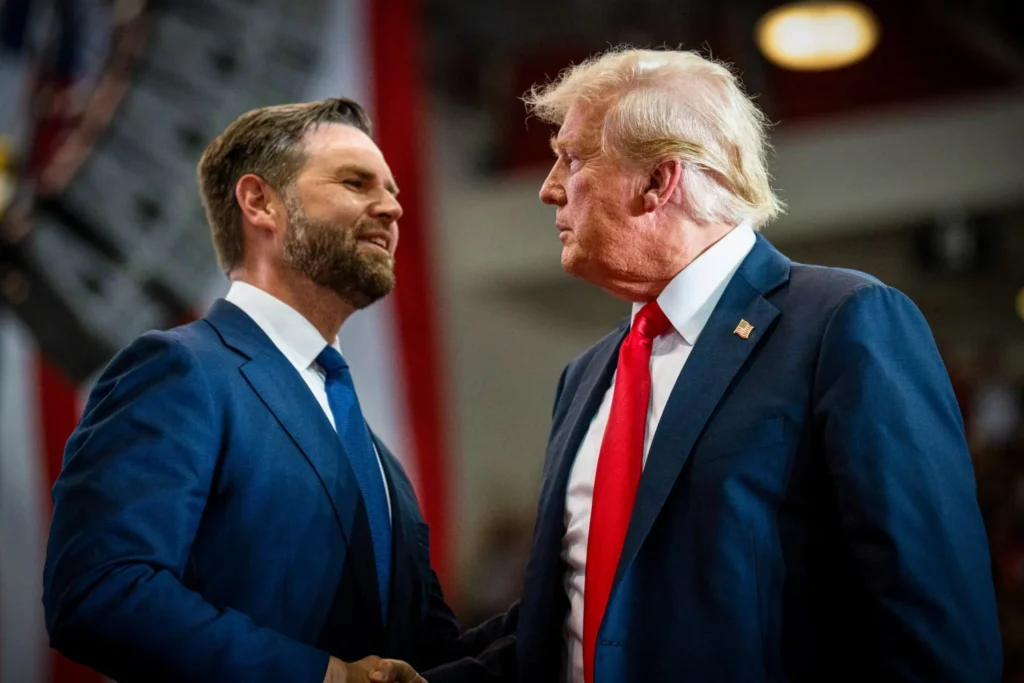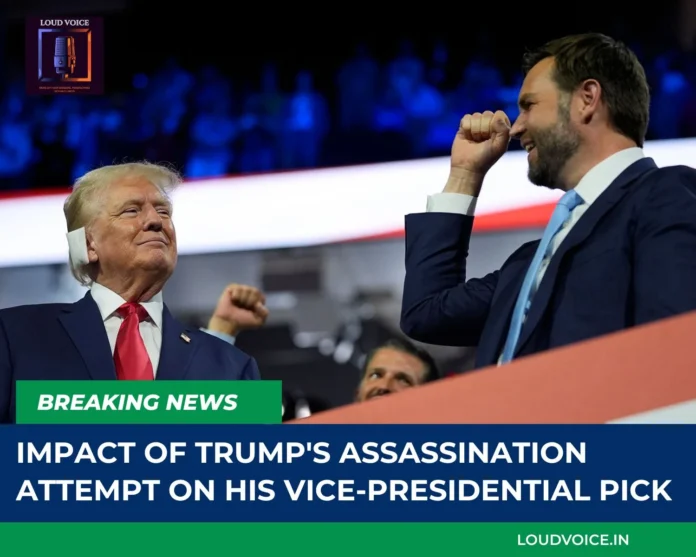Impact of Trump’s Assassination Attempt: Introduction
The attempt on Donald Trump’s life not only shocked the nation but also played a pivotal role in shaping the trajectory of his political future. Former White House Communications Director Anthony Scaramucci suggests that the trauma from the incident influenced Trump’s selection of JD Vance as his running mate. This article explores the impact of the event, Scaramucci’s insights, and the broader implications of political assassinations in American history.
The Psychological Aftermath of the Assassination Attempt
Following the failed assassination attempt, Trump reportedly experienced significant emotional distress, which is understandable given the gravity of the situation. Scaramucci states that Trump’s decision-making process was deeply affected during this time. “He did not want Vance to be his Vice President,” he claims, but in the 72-hour period following the attack, Trump’s mental state may have led to an impulsive choice.
Post-Traumatic Stress and Political Decision-Making
Political leaders often face high-stakes decisions under extreme stress, and history has shown that trauma can alter a leader’s judgment. In this case, Scaramucci implies that Trump’s post-traumatic stress symptoms—common after near-death experiences—might have contributed to an unexpected VP selection.
Leaders throughout history have faced similar psychological effects following traumatic events. Abraham Lincoln, for example, was known to suffer from severe depression during the Civil War. More recently, George W. Bush’s decision-making in the wake of the 9/11 attacks was scrutinized for being influenced by stress and crisis management pressures. The psychological impact of political violence cannot be understated, as it often alters the trajectory of entire administrations.
The Selection of JD Vance
JD Vance, a senator from Ohio and author of “Hillbilly Elegy,” emerged as an unconventional pick for Vice President. While Trump’s inner circle reportedly had other candidates in mind, the assassination attempt seemed to accelerate the decision-making process.

Was JD Vance the Best Choice?
Scaramucci believes that Trump’s state of mind at the time played a crucial role in Vance’s selection. “I don’t think the President was in his best decision-making mode right before the convention,” he remarked, suggesting that had the assassination attempt not occurred, a different candidate might have been chosen.
How Public Perception Shaped Trump’s Decision
Beyond psychological factors, public sentiment also played a key role in Vance’s selection. Following the assassination attempt, Trump’s approval ratings saw a surge, with many rallying behind him. This newfound wave of support may have influenced his decision to select a running mate who would further solidify his base. Vance’s appeal among working-class voters and his strong stance on immigration made him an attractive choice in Trump’s eyes, even if he had initial hesitations.
The Broader Impact of Assassination Attempts in History
Political assassinations—or even attempts—have historically reshaped leadership trajectories. John F. Kennedy’s assassination remains one of the most debated events in American history, with theories ranging from lone gunman explanations to complex conspiracies.
Other leaders, such as Ronald Reagan, experienced assassination attempts that ultimately strengthened their public support. Reagan’s approval ratings skyrocketed after he survived a 1981 shooting, reinforcing his image as a strong and resilient leader. Similarly, the attempt on Trump’s life may have shifted public opinion and reshaped the political landscape leading up to the election.
The Counterfactuals: What If?
Historians like Dominic Sandbrook argue that assassinations force us to consider alternative realities. “What could have happened if Kennedy had lived? What could have happened if Caesar had lived?” he posits. In Trump’s case, it is worth asking: Would JD Vance still be Vice President if the attempt on Trump’s life had not occurred?
The counterfactual analysis of such events often reveals how a single moment can shape the course of history. If Trump had not been targeted, it is possible he would have chosen a more seasoned political figure to balance his ticket rather than opting for a relatively newer political personality like Vance.
Public Fascination with Political Assassinations
America has long been enthralled by political violence, with figures like the Menendez brothers and Luigi Mangione capturing public imagination. The glorification of assassins and political criminals remains a controversial topic, with some figures even gaining fan followings despite their crimes.
The Rise of Political Voyeurism
Sandbrook notes that there is an inherent human interest in the extremes of history. “With any historical subject, there’s a slight element of voyeurism to it,” he explains. In the digital age, social media magnifies this fascination, as seen with the reaction to the Trump assassination attempt—which quickly became fodder for memes and online discourse.
The rapid spread of memes and satirical takes on serious political violence raises ethical concerns. While some view political humor as a coping mechanism, others argue that it diminishes the gravity of real-world events. The assassination attempts on Trump quickly became fodder for online debates, with some expressing concern about the increasing normalization of political violence in public discourse.

The Future of Trump’s Political Career
Despite the attempt on his life, Trump remains a formidable political force. Whether JD Vance proves to be a strategic asset or an impulsive mistake remains to be seen. As Scaramucci and Sandbrook discuss American political history, the larger question lingers: how do moments of crisis shape the destiny of a nation’s leaders?
What’s Next for Trump?
Trump’s resilience in politics has been tested multiple times throughout his career, but the assassination attempt added a new dimension to his public persona. If Vance proves to be a weak or divisive choice, Trump’s decision-making abilities will face renewed scrutiny. However, if Vance strengthens the campaign and mobilizes voters, the assassination attempt may ultimately be seen as a pivotal moment that solidified Trump’s path to re-election.
Additionally, the event raises concerns about political security and the increasing dangers faced by high-profile figures. In an era of heightened political polarization, ensuring the safety of elected officials has become a pressing national issue.
Conclusion
The assassination attempt on Donald Trump’s life marked a critical turning point in his political career, influencing his decision-making in unexpected ways. While JD Vance’s role as Vice President will be scrutinized in the years to come, one thing is clear: history has a way of reshaping political landscapes in ways no one can predict.
From Abraham Lincoln to John F. Kennedy and Ronald Reagan, history has shown that assassination attempts often serve as defining moments for leaders. Whether Trump’s near-death experience will be seen as a rallying cry for his base or a factor that led to an uncalculated decision remains to be seen. Regardless, the intersection of political violence, public sentiment, and leadership choices continues to be a powerful force in shaping America’s future.


